Wheelgun Wednesday: S&W Model 610, 10mm Revolver

Welcome to TFB’s Wheelgun Wednesday, where we look at the vast world of wheelgunnery. This week we’ll take a look at the S&W Model 610, 10mm revolver I had on loan from Smith & Wesson. The large, “N” framed S&W model 610 utilizes moon clips to extract the six rimless casings once they’ve been fired. I was glad for the opportunity to give the Model 610 a whirl after years of drooling over them. Another plus for this review is that the S&W 610 is able to fire the .40 S&W cartridge, of which I had a backup supply as well as the 10mm Auto I was able to acquire during the great ammo shortage of 2020 & 2021.
Smith & Wesson Revolvers @ TFB:S&W 610, 10mm revolver: HISTORY & SPECS
The S&W 610 was introduced in 1990 as an expansion to the “N” frame lineup, but only 5000 were produced in that two-year run. The 610 was reintroduced in 1998 for a short time, and only recently run again beginning in 2019. I don’t know the current demand for the latest production run, but the earlier runs are highly sought after. The S&W 610 is probably most associated with use in competition, but could also be used for hunting or as a “woods gun,” or just for plinking.
SKU 12463 (4″), 12462 (6.5″)
Model Model 610 10MM Revolver
Caliber 10mm Auto, 40 S&W
Capacity 6
Length 9.5″ (4″), 12″ (6.5″)
Front Sight Black Blade Interchangeable
Rear Sight Adjustable White Outline
Action Single/Double Action
Grip Synthetic
Cylinder Material Stainless Steel
Barrel Material Stainless Steel
Frame Material Stainless Steel
Barrel Length 4″ (10.2 cm), 6.5″ (16.5 cm)
Weight 42.6 oz. (4″), 50.1 oz. (6.5″)
S&W 610, 10mm revolver: INITIAL IMPRESSIONS
The current production of the S&W Model 610 is offered in four, and six and a half inch barrel lengths, of which I opted for the four inch version. The fit and finish of the 10mm revolver looked great, and I love the heft of the “N” frames. I noticed the grip was different on this model than that of the others I’ve tried recently, such as the loved or hated Hogue grips on the S&W 929 I reviewed. The grip on the 610 was of a harder rubber than the usual Hogue, finger-grooved grips, but the new version wraps around the backstrap of the frame, which made me hopeful it would be a bit more comfortable under recoil. There are also faint finger groves, but not as deep as the older Hogue grips which I always found uncomfortable.
The trigger was the next thing I examined, and it was so buttery smooth to the point that I was immediately convinced that it’s the best S&W revolver trigger I’ve tried yet. Not that the others I’ve reviewed have been bad, they were also very nice, but the trigger on the S&W 610 was a cut above the rest. Despite the nearly unhindered travel of the trigger, it was still easy to stage for slower, careful shooting. The weight of the double action trigger pull was averaging around 12 pounds, which is pretty comparable to other models, while the single action pull hovered around two pounds.
S&W 610, 10mm revolver: RANGE TIME
After having dry fired the S&W 610 plenty of times, I was itchy to get to the range. I had managed to acquire some Magtech and Armscor 10mm Auto, and I’d already squirreled away some Ultramax re-manufactured .40 S&W ammo before their sad loss. I started off with the Armscor ammunition and was quite pleased to hit the steel target at 100 yards on the very first shot. However, it went downhill from there as the next trigger pull doubled in weight and I knew something wasn’t right. The empty casings were stuck tight, but prying the rims up unstuck them. I switched to the Magtech 10mm and my .40 S&W ammo and they functioned perfectly as the cylinder rotated through double action. They also ejected smoothly, which led me to believe it was the Armscor ammunition that was somehow expanding too much, even though there were no signs of overpressure.
Once the ammo situation was sorted out, I had a blast shooting the S&W 610. The slotted moon clips were easy to load fresh cartridges and unload spent casings by hand. The 10mm revolver was well balanced and accurate. The four inch barrel felt good for quicker pointing, but if I were going to use it more for hunting I’d consider the six inch option for a bit more velocity. Outside of the Armscor ammo issue, I spent the majority of my time with double action.
The grip style used on the S&W 610 was perfect as it soaked up recoil in the web of my hand, and the slight finger groves weren’t obtrusive compared to the earlier styles. While the newer grip doesn’t look the prettiest compared to fancy wood grips, it still maintains a decent-looking profile while absorbing felt recoil. It’s basically a great balance between practicality and functionally good looks.
S&W 610, 10mm revolver: FINAL THOUGHTS
As with other pistol caliber rimless cartridge revolvers, the S&W Model 610 may not be for everyone, but if you have plenty of 10mm Auto or .40 S&W stocked up for other guns and want to keep up on your wheelgunning without expanding your “caliber footprint,” then you should certainly consider the S&W 610. Another consideration could be if one just really likes either caliber and just wants to shoot them out of a Smith & Wesson N frame revolver, then I don’t think they would be disappointed either.
The S&W 610 has an MSRP of $1007, which is out of my wheelhouse for the time being, but I’ve come to realize that even though the up-front cost of revolvers is pricier than your average polymer framed semi-automatic, they generally allow for the chance to dish out more powerful payloads while being more elegant, and allowing one to harken back to earlier technology, when extra capacity isn’t a requirement. You can find Smith & Wesson’s specification page on the model 610 HERE.
What do you think about Smith & Wesson’s 10mm revolver?

Doug has been a firearms enthusiast since age 16 after getting to shoot with a friend. Since then he's taken many others out to the range for their first time. He is a husband, father, grandfather, police officer, outdoorsman, artist and a student of history. Doug has been a TFB reader from the start and is happy to be a contributor of content. Doug can be reached at battleshipgrey61 AT gmail.com, or battleshipgrey61 on Instagram.
More by Doug E
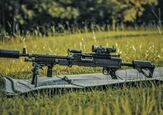
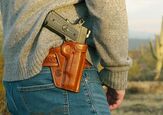
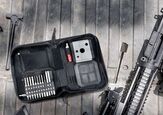











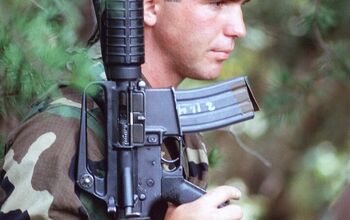
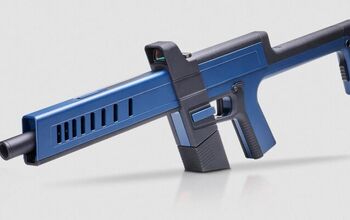




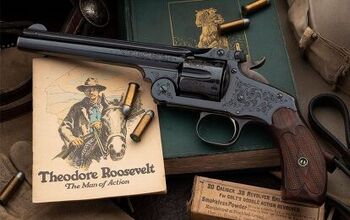
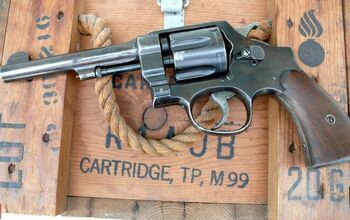
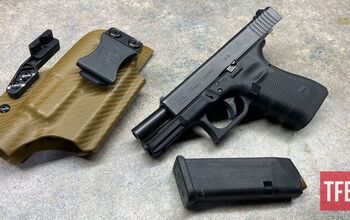
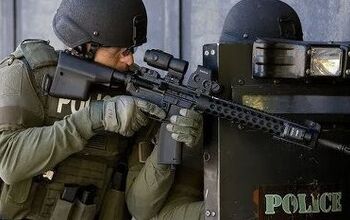
![[IDEX 2025] Black Box For Small Arms - The FN SmartCore](https://cdn-fastly.thefirearmblog.com/media/2025/03/05/06581/idex-2025-black-box-for-small-arms-the-fn-smartcore.jpg?size=350x220)

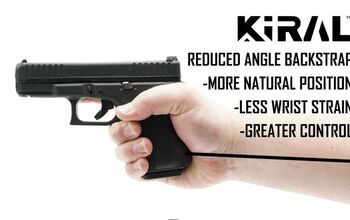


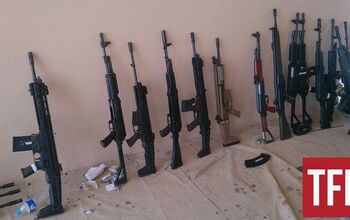


Comments
Join the conversation
I frequently consult my older brother for firearms advice and this sometimes saves me from making impulse purchases. This is what he said, interested if anybody has counterpoints:
Pointless. So many better revolver cartridges. Explains why S&W doesn’t make many 610’s.